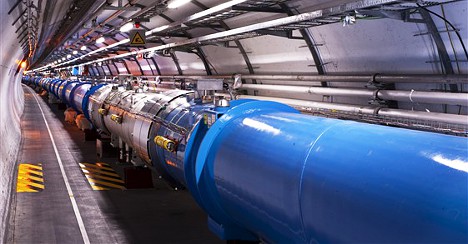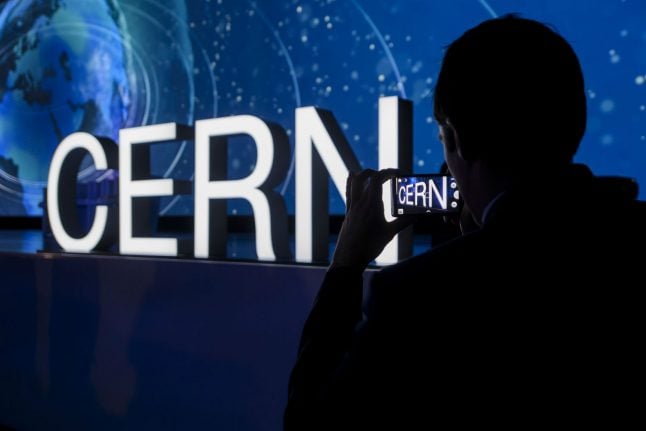"The time has come to look even further ahead," the European Organization for Nuclear Research (CERN) announced.
In 2012, CERN's Large Hadron Collider (LHC) — a giant lab housed in a 27-kilometre (17-mile) tunnel straddling the French-Swiss border — identified what is believed to be the Higgs boson, the long-sought maker of mass theorized in the 1960s.
The facility flushed out the so-called God particle by crashing proton beams at velocities near the speed of light. It went offline a year ago for an 18-month overhaul.
The LHC, completed in 2008, has "at least 20 more years" of life in it, the agency said.
However, the long time needed to build its successor — the LHC took a quarter of a century — means that planning should start now.
It will launch a feasibility study next week for a so-called Future Circular Collider (FCC) with a circumference of 80 to 100 kilometres (50 to 60 miles).
The FCC would probably be located in the same area and may incorporate the LHC tunnel in its infrastructure, CERN said in a statement.
The LHC after its overhaul will see collision energies reach 14 teraelectron volts (TeV) but the FCC should be capable of reaching unprecedented smashups of around 100 TeV, CERN said.
The FCC study will run in parallel with an ongoing probe into an alternative design — an 80-kilometre (50-mile) straight collider dubbed the Compact Linear Collider (CLIC).
The two studies will examine the feasibility and costs and produce conceptual designs by 2018/2019, when the European-wide strategy on particle physics research is set to be updated.
The winner will be "a worthy successor to the LHC," CERN said.
"Such an accelerator would allow particle physics to push back the boundaries of knowledge even further," it claimed.
Targets could include supersymmetry, the notion that there are novel particles which mirror each known particle.
It could also help shed light on dark matter, which comprises most of the cosmos and whose existence is inferred from their impact on ordinary matter.
Some 300 scientists will meet at the University of Geneva from February 12-15 to kick off the five-year feasibility study for the FCC.
There is no way of knowing how much building the FCC would cost at this stage, CERN spokesman Arnaud Marsollier told AFP.
Conceived in the 1980s and approved in the 1990s, the LHC cost five billion francs ($5.6 billion) to build.
CERN aims to have enough information by the end of the decade to — along with its global partners — be able to decide which way to go, Marsollier said.
He acknowledged that any new project is certainly decades from completion.



 Please whitelist us to continue reading.
Please whitelist us to continue reading.
Member comments